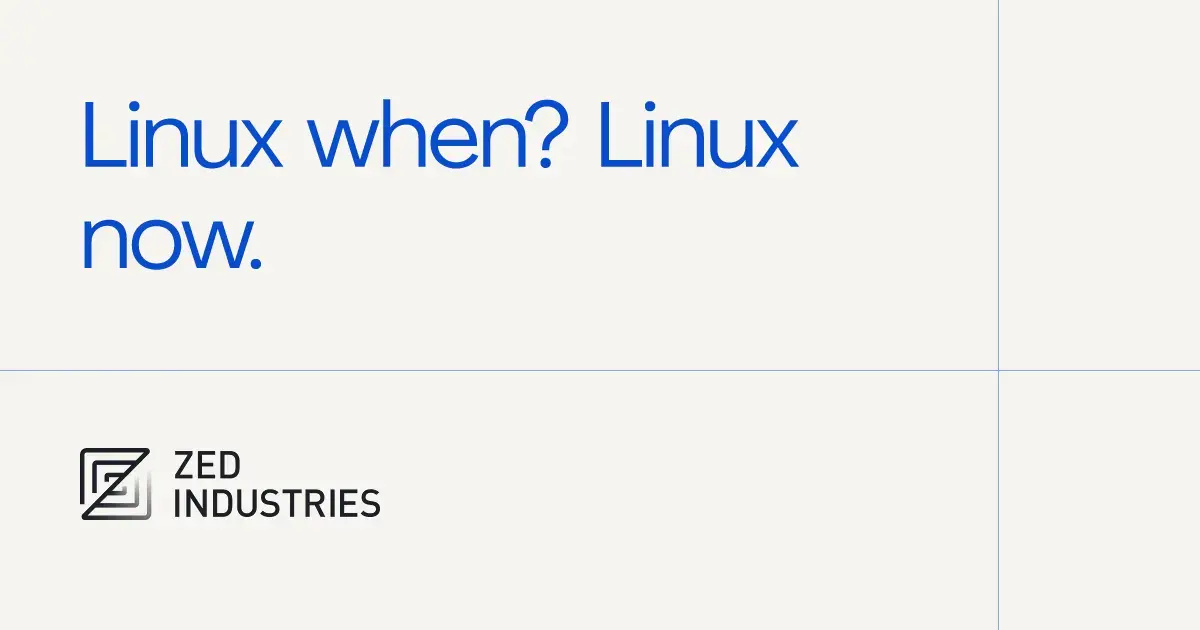Zed (vscode alternative) on Linux is out!
Zed (vscode alternative) on Linux is out!

zed.dev
Linux when? Linux now. - Zed Blog

cross-posted from: https://jlai.lu/post/8476122
Zed on Linux is out!
Zed (vscode alternative) on Linux is out!

Linux when? Linux now. - Zed Blog

cross-posted from: https://jlai.lu/post/8476122
Zed on Linux is out!